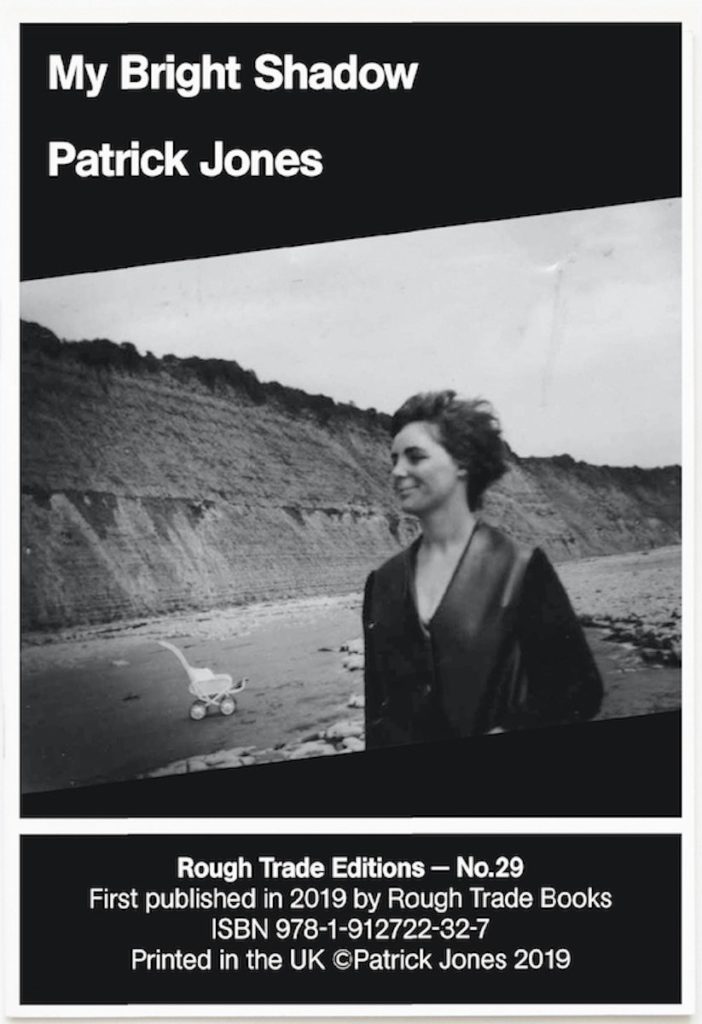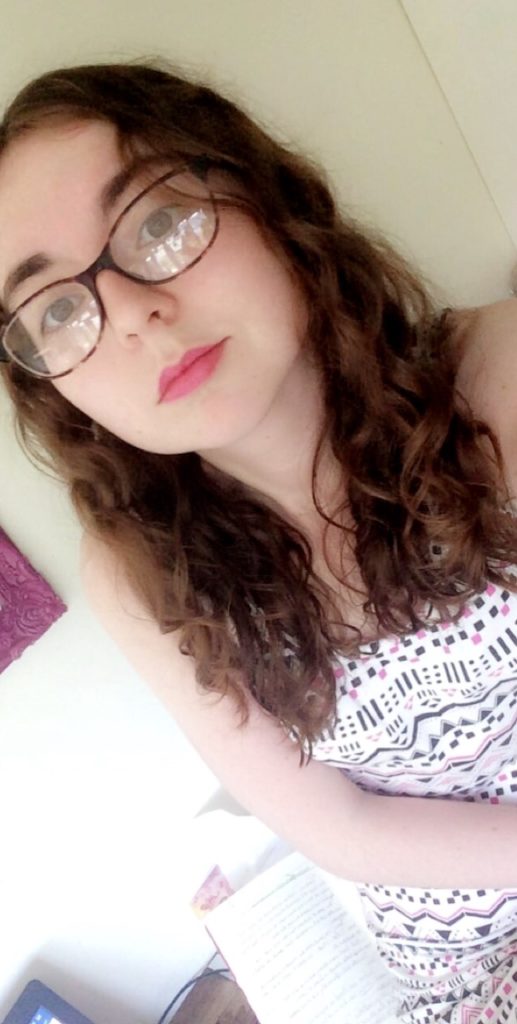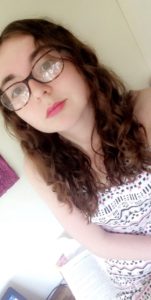
I heard of this book from a post on Central Avenue Publishing’s Instagram page:
https://www.instagram.com/p/BxKe0Mphhq1/. The look of the book, lighting, and array of stones drew me in to what it might be and what the work might be like, having never heard of the author, Wilder Poetry, nor the book itself before. Admittedly, the book sat in my wish-list for quite some time, as I was wading my way through my university’s reading list and books I had already bought in the mean time, but the minute I could get it, I did. I found out that the book was worth the wait; cover to cover I found poems I really enjoyed, imagery I thought captivating, and turns of phrase I found impeccable.
Something I loved quite greatly was the use of grey colours through the book; the blacks and whites, and the dots of silver on each cover and throughout its pages. I enjoyed that these were the only colours that were used, and that they were swapped around frequently. Black words on white pages, obviously, but also the flip-side of just that – it gives a new feeling to the book, and interesting angle is given to me, the reader, and it makes whatever poem is on the page feel much deeper and much, much more eye-catching. For example:
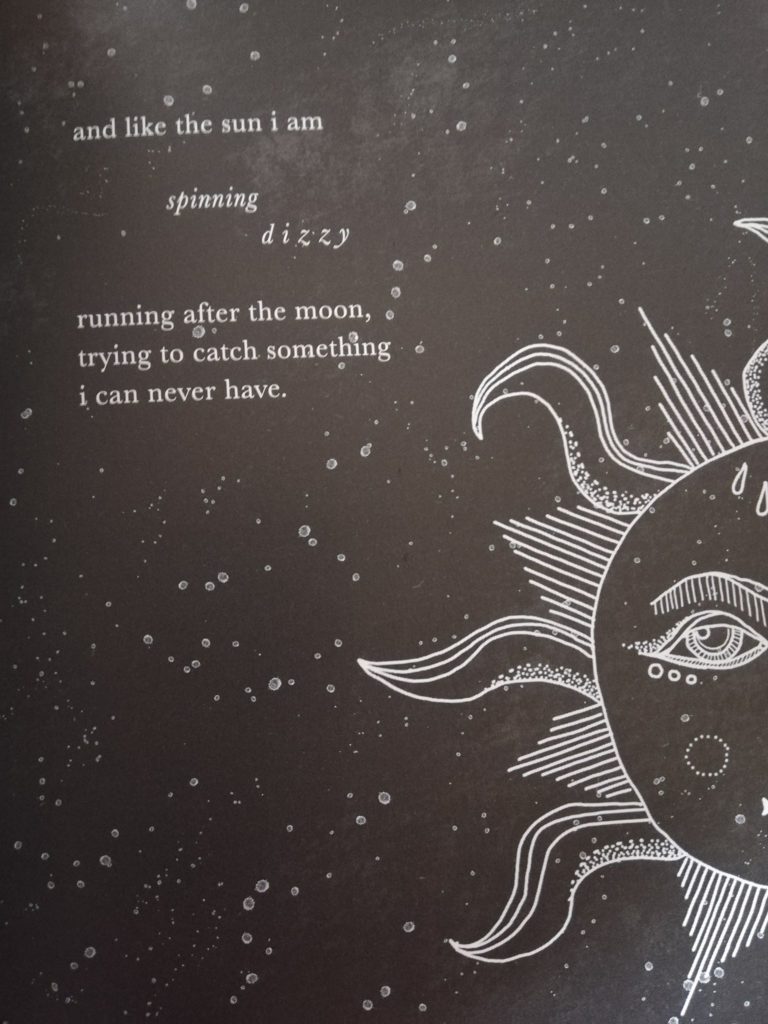
This is one of the pictures in the book that I loved especially, marking it with a post-it note as I so often do with poetry books. There was something I adored about the circles in the sun’s eyes, matching the longing feeling to the small piece, which is why this stuck out. Plus, “running after the moon” didn’t have to reach far to strike me as a lovely line, making me think about the way the moon follows you when you’re in the car or walking home. There was another, not unlike it, talking about dreams with a small corked bottle. Similarly made up with these white lines on dark pages, with a poem talking about dreams in the everyday lives that we have – not just isolated away in fantasy. They feel uplifting, and definitely boost the meaning of the poetry. I love the way they have a power like this, when they are just illustrations in a book, along with the words I like how it really feels like they mean something.
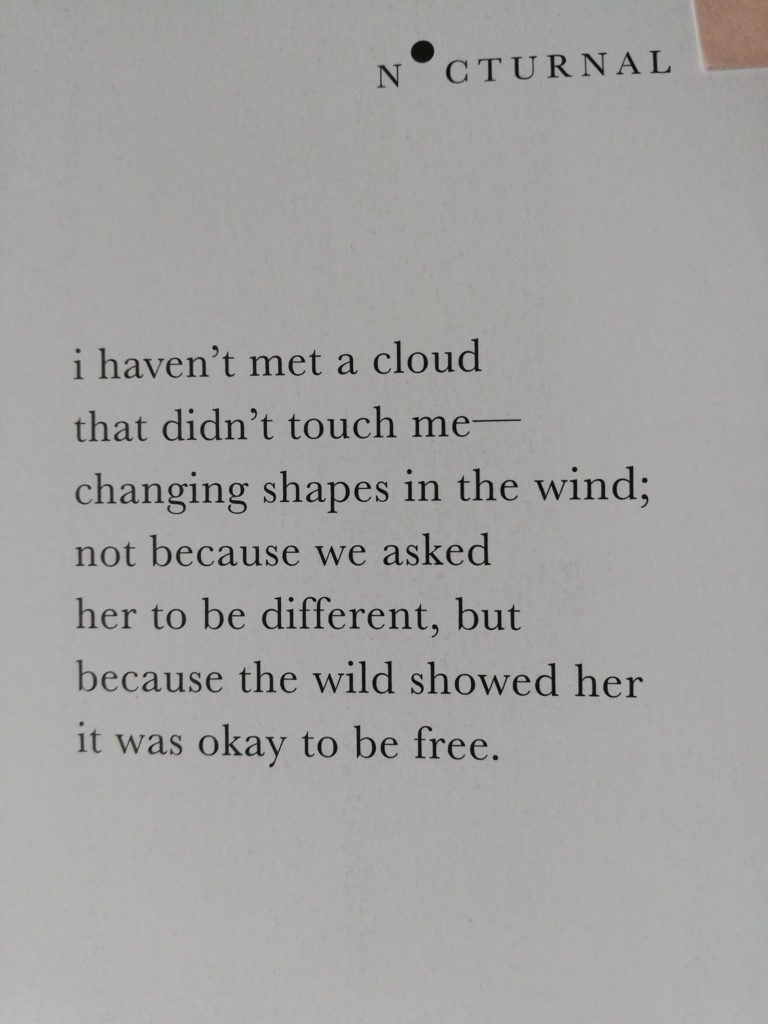
This is the poem the precedes the image of the sun and its poem, and it’s one of my favourites. It feels timely, while still being gentle and elegant – I am partial to books like this that quietly feed you their ideas, instead of slamming them down in front of you with force. The words in this poem, and in the wider book, are all ones I loved; the sky being very frequent, too, was lovely.
I really enjoyed this book! Wilder Poetry has a knack for writing in this particular and really lovingly articulate way. I’m glad I heard about it, and even happier that I got the chance to pick it up and read it myself.


